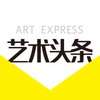分享到微信,
请点击右上角。
再选择[发送朋友]
或[分享到朋友圈]

最早看到李天元的作品是在1991年9月,那时他与同学赵半狄刚从中央美院毕业不久,就在北京的天地大厦(现名保利大厦)举办了油画联展。他是最早具有“新生代”创作意识的年轻艺术家之一。“新生代”艺术创作潮流探究的不是大历史的风云变幻,而是将他们平淡琐碎的日常生活现象和由衷而发的直接感受,通过纯化了的油画语言来强调和重视艺术与生存观察的近距离倾向,从而与“85美术运动”拉开了显而易见的距离,也为整个中国当代艺术提供了一种新的想象与表现方式。
时光荏苒,一晃十几年过去了。期间,李天元始终坚持着实验艺术的创作,尝试着各种可能性。最近,一批油画新作又呈现在我们的面前。在分析他的新作之前,需要简单地了解中国当代艺术在当下面临的一个问题或困境。改革开放之后,由于社会转型所造成的中国现实本身的复杂性和丰富性,为中国前卫艺术提供了可利用的充沛资源,而根植于中国现实的奇景异观也构成了中国前卫艺术具有独特魅力的原因之一。许多艺术家根据自身的成长经验和生存记忆与当下的文化情境,在创作上具有明确的现实文化针对性。这方面在上世纪90年代的中国当代艺术中是为最显著的表征,也是中国前卫艺术不断受到国际艺术界青睐的原因之一。换句话来说,中国在社会转型中出现的种种矛盾、困惑与焦虑相互纠缠的异常丰富的资源,构成了中国前卫艺术的活跃与丰富多彩。然而,在这一趋向的过程中存在着令人担忧的状况。其问题的普遍性在于有些艺术家的创作虽然在材料媒介上有些变化的尝试,但在观念或方法论上依旧延续的是一种写实主义的思路与态度,这种对现实一对一的汲取、反映缺乏艺术上的转化和超越,而流于一种廉价的所谓当代性的体现,或陷入庸俗社会学意义上的表现,造成了许多艺术家的创作都是一种简单和照镜子式反射现实题材的视觉泛滥现象。其实,中国现实的精彩往往超过了艺术家作品的视觉张力,而有些艺术家似乎缺失了现实的形而之上的超验性的提升。这是我与李天元在聊到中国当代艺术生态时所获得的共识。我揣测或许正是李天元出于对中国当代艺术本身的判断与思考,才导致了他最新的创作在观念和语言方式上的改变。因为在我看来,对当代文化境遇的敏感,将导致在创作观念和方法论上的改造,而艺术家就是以一种艺术的方式来转化、体现这种思考判断和选择。
实际上,李天元的油画新作品中创造了两个线索,一个是与社会现实和他的生存状态平行的,但又被他置换或重现了的心理现实;另一个是通过刻骨铭心的记忆而展开并提供给观者的关于个人和社会命运的超现实的表现。所谓心理现实的置换或重现,是指他以现实在人内心的反映来进入到现实的层面,由此来审视当下复杂人性的心里纠葛。这种对“心理现实”的执拗追求使得他的新作产生了一种视觉张力,并注入到人性的一种颤栗之美,如《公园》、《王石之》、《意外》等。写实性的“置换或重现”既可以看出这些作品与现实主义艺术的血缘关系,又反映出他学院式艺术教育的背景。呈现了他在对待记忆、现实问题上与前几代艺术家的差异与不同的态度和立场。他的创作不以讴歌这些场景所体现出来的美感为己任,而是在介于一种具体的现实图像与非真实场景之间的界限上,以及以一种意象的超现实的隐喻,来寻求他对现实的别有怀抱的新的判断和思考。同时,他油画新作的有趣之处在于他是以心理和感情的节奏来处理时空关系,比如《燕窝岛》、《烟》《北方》、《白桦林》等,心理和感情的起伏跌宕不是点缀和装饰,而是其中的关键的线索。人的现实境遇和记忆当然不可缺少,但心理和感情的波动才是他创作意识的中心。在这里,作品所要表现的本身不仅仅是现实“似真”的展开,而是一种不断通过思考艺术与现实关系来追问世界的真实性。这种追问正好和作者对于“现代性”的宏图大计的反思正相契合。他一面通过细微入神的人物心理的探究思考人置身于大时代中的复杂的命运,将人物的日常生活时时被大历史拨弄的中国人的二十世纪的命运加以思考和追问,另一方面,却又对于整个视觉叙述本身做再度的思考,探究“真实”的命运。这种复杂的画面意境和视觉张力并非是作者的炫技之举,而是面对艺术本身的必然选择。
当然,他的油画新作的张力形式还是表现在画面叙事的色调中。作为自我复述式的带有个人记忆的油画来说,其基调虽然是沉郁而苦闷、哀婉而细腻,如《S先生》、《绿》、《故乡一、二》、《上苑的天空》等等,但他却通过色彩、笔触的跌宕起伏及叙述视角的适度转换,不断地将内心的沉闷倾诉演化为喜怒哀乐忧的起起落落,使其语境带有强烈的抒情意味,甚至有一种抑扬顿挫的音乐节奏。在一种象征和隐喻的话语方式中,使叙事语调饱含着某种诗情画意的审美格调,这种主观化的语调与人物悲苦或无奈的心绪构成了一种明确的张力关系,也使得观者在审美接受的过程中体验到李天元的倾诉与魅力。这种魅力,在于他其实接触了中国当代艺术一直执着的两个命题的再思和追问。一是中国当代艺术的主流在艺术和现实的关系上始终执着于艺术对于“现实”的直接的投射和反映,始终相信“现代性”能够洞见生活的真相和现实本身。于是,艺术的作用自然是面对历史发展的趋向的反应。二是中国当代艺术的主流始终执着于宏大的历史进程的表现,执着于紧迫的民族和阶级冲突下的社会状况的探究和革命的激情,忽视日常生活本身的不可缩减的具体和琐碎的性质正是“现代性”的另一面。这两者都是与中国现代性的历史面对的民族屈辱和社会危机紧密相连的,是历史的必然和中国“现代性”的历史特点之一。但李天元的油画新作从两个方向对这些命题有了新的角度的再思和追问,随着画面叙事性的展开,使得“似真”的表现得到了反思。艺术不是现实的镜子式的简单反应,而是错综的多重关系的展开,它不是想象一种观者对于视觉造型完全的、无条件的信任和肯定,而是一种新的对话和再思的生成,一种对于“形象”的艺术化提升和转换。因此,他的这种选择乃是对于一种简单的现实观和艺术观的再思。通过创作者不断探究自己油画作品的可能性,不断地唤醒自身对于现实和虚构关系的再度追问。这是他的一种历经沧桑的智慧,也是他又一次新的思考向度。
艺术的特征之一是想象的生存场景和虚构的政治故事,它的真实与否并不重要,重要的是它隐秘而曲折地将现实的感受留给自己,将想象给予了观者,就像李天元所呈现的画面一样。他的油画新作对于中国当下和昨天提供了最为敏锐的观察和思考,对中国现实变化在心理层面上提供了一个有趣而独特的参照。
It was September of1991 when I first saw Li Tianyuan’s work. He joined group exhibition right after graduated from Central Art Academy, together with now renowned artist Zhao Bandi, in Beijing Tiandi Building (now Poly Center). He is one of the earliest artists who features idea of New Generation. Instead of exploring the ebb and flow of history, the artists of New Generation use purified oil painting language to express their inner feeling to prosaic and trivial daily life, to emphasize the tendency of close up of art and life observation. It obviously keeps distance from 85 Art Movement, offering new imagination and expression for Chinese contemporary art.
More than ten years fly away. Li Tianyuan persists in his experimental art work, exploring potentials in it. Recently, some new oil paintings come into our sight. Before analysis to his work, it is important to understand the problem and dilemma of contemporary Chinese art today. After economics reform, complex and richness of Chinese situation because of social transformation provide great resource for Chinese avant-garde art; bizarre and fantasticality stemmed from Chinese situation become the most reason for its peculiar fascination. Many artists direct clearly to social and cultural reality in their work, based on their growth and life experience and current cultural situation. It is especially obvious in Chinese contemporary art in 1990s. It is also the reason of growing attention from international art field. In other words, the rich resource from contradiction, confusion and anxiety at time of social transformation in China compose the vivid and colorful reality of Chinese avant-garde art. However, this tendency brings worrying condition. Common problem is that although there are trials in material and media, but in term of concept and methodology, main thought and attitude is till confined within Realism. The one to one inspire drawing shows absence of artistic transformation and transcendent. It deteriorates into cheap re-presentation of Contemporary or expression in vulgar sociology, which cause the deluge of visuals simply mirroring the reality. Actually, the fantastic Chinese reality offers far more than visual tension expressed by artists. Nevertheless, some artists seem lack tran-experience refining from reality. The above is consensus between Li Tianyuan and I when discussing Chinese contemporary art ecology. I had a hunch that it is right because Li Tianyuan’s reflection and judgment on Chinese contemporary art that lead him to new creation in concept and language. To me, sensitiveness to contemporary cultural situation naturally leads to regenerating artistic ideology and methodology. Artists transform and present the reflection and judgment in their peculiar artic way.
Actually, There are two trails Li Tianyuan’s new oil paintings: one is the mental reality that parallels to social reality and his living condition meanwhile was Substituted or recurred by him; another is surreal expression unfolded and presented from deep memory to audience about personal and social destination. Permutation and recurrence of mental reality means he enter level of reality with reality’s reflection into people’s mind, hereby he investigate the complex humane psychological confliction. Persistent seeking Mental Reality bring his work new visual tension and beauty of trembling in humanity, for example, The Garden, Wang Shizhi, Accident etc. Realistic permutation or recurrence in his work shows its blood relationship with Realism and his academic art education background. It shows his unique attitude and position when dealing with memory and reality issues. Instead of trying to embrace the beauty of the situation, he pursue his unique judgment and reflection towards reality by transiting between concrete realistic image and unrealistic situation with metaphor of surreal impression. Meanwhile, what is interesting in his new oil paintings is that he treats time and space relationship with mental and emotional rhythm, such as Island Of Bird’s Nest, Smoke, Northern Land, Birch Forest etc. Mental and emotional flew is not just garnish but central clue. It is true that people’s realistic experience is important, but it is mental and emotional flew that stands in center of his creative mind. Here his work not only unfolds the resembled reality, but seeking reality of the world by reflecting relationship between art and reality. The pursuit right concurs with his retrospection on the ambition of Modernism. On one aspect, he investigate people’s complex destination in a grand era by carefully studying people’s psychology, thinking and questioning Chinese people’s destination in 20 Century in the context that people’s daily life is constantly disturbed by grand history; On the other aspect, he re-think the visual narration, explore fate of Reality. The complicated quality and visual tension is not from artist’s bragging on technique, but a natural selection in art.
Certainly, tension in his new oil paintings comes from the hue used for visual narration. To a painting with self-narration and personal memory, the hue and color is gloomy, blue and gentle, such as Mr. S, Green, Homeland 1 and 2, Sky Of Shangyuan. But he turns inner stressful narration to flews of pleasure or dejection with strong epic flavor – or even musical rhythm. With the language of symbol and metaphor, the narration has sense of poetic style. There forms a clear tension between subjective tone and people’s grief mood. It is right this tension that knocked the viewer and make them witness Li Tianyuan’s charm when listening to his confide. His charm comes from his close looking into reassessment and question two themes dominating Chinese contemporary art: One is that since mainstream of Chinese contemporary art persists in direct reflection from “reality” to art and they believe Modernism is insight to truth of life and body of reality, hereby art action is naturally reflection of history developing flow. The other one is that mainstream of Chinese contemporary art is obsessed to illustrate grand course of history, is obsessed to look into social situation under disturbing confliction of nation and classes, but ignore that it is right inevitable detail and trivial nature of daily life forms another side of Modernism. These two characters are connected with Chinese Modernism’s close relationship with national humiliation and social crisis. They are logical historic consequences and one of features of Chinese Modernism. But Li Tianyuan reassesses and questions these themes in his new oil paintings. Along with unfolding the illustrated narration, the “resembled reality” is reevaluated. Art is not simple reflection of reality like in mirror, but unravel of complex multi-level relations; it is not imagination of viewer’s absolute and unconditional trust and agree to visual forms, but generating new conversation and reflection, artistically distilling and transiting from appearance. Hereby, his choose to reassess this simple reality and art outlook. He arouses his own re-thinking of relationship between reality and imaginary through explore potentials in his oil painting. This is wisdom gained from his checkered life. Again, he steps into another new thinking dimension
Imagined living situation and fictitious political story are among characters of art. Without primary significance in truth, artist euphemistically embraces personal feeling of reality, leaving space of imagination to viewers, like those in Li Tianyuan’s oil paintings. His work provides sharp observation and reflection to China in the present and the past, forming unique reference to Chinese reality in mental aspect.
Translation/ Feng Keru
作者:冯博一

分享到微信,
请点击右上角。
再选择[发送朋友]
或[分享到朋友圈]

